How Old Animosities Fuelled Inter-Ethnic Clash In Southwest Nigeria
The hausa-yoruba clash at Shasha market, Ibadan, Oyo state started long before Thursday when a violent clash erupted; here is the background to the violence.

Abdulbasit’s parents have lived in Shasha community in Oyo state, Southwest Nigeria, since 2005. But on Friday, his dad, a Yoruba man, and his mum, a Hausa woman, left the house they built in the community and vowed never to return. And they were lucky.
Popularly known as ‘Baba,’ one of their tenants, a Hausa man in his 60s, was murdered in his apartment on Friday evening in the climax of the violent clash between the Hausa and Yoruba communities in Shasha.
The late ‘Baba,’ a cloth seller, was among many brutally murdered in the violent ethnic clash that lasted for two days before the Oyo State Governor, Seyi Makinde, declared a curfew on the community on saturday afternoon.
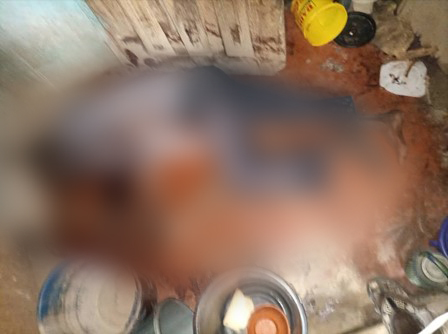
The immediate cause of the clash was said to be an argument between a pregnant woman and a cart pusher over waste disposal. The cart pusher allegedly assaulted the woman after she insisted that he clear the waste he dumped in front of her shop.
While trying to resolve the altercation between the two, a cobbler, Sakirudeen Adeola, popularly known as Korex, was reportedly punched and he collapsed on the spot.
HumAngle learnt that after Korex was rushed to the hospital, the atmosphere became tense and his friends threatened to go on a rampage if he failed to recover.
Members of the Hausa community met the threat with equal force, some residents said.
Bottled up tensions
Although the immediate cause of the clash was the fight between the two artisans, HumAngle learnt that the crisis was the product of existing tension between the two ethnic groups in the community for many years.
The violent reaction to Korex’s death by Yoruba residents was a way of showing that they should be in full control of the community because it belongs to them, some residents said.
“Everything boils down to the fact that there has always been this tension between Yoruba and Hausas,” Abdulbasit, a young man in his 20s who grew up in the community, told HumAngle.
“They have not just seen the perfect chance to express their anger until now because they feel the Hausas are dominating the Yoruba in that area,” he added.
“For example, they will tell you that a Hausa man is the head of a market in Yorubaland, and it should not be done. There was a time they said it was wrong for the Sarkin Shasha (head of Hausas) to get 70 per cent of the money generated from the market while the Baale of Shasha (head of Yorubas) gets 30 per cent. Things like this came together to make the crisis so serious,” he said.
Kebbi State Governor Atiku Bagudu also acknowledged that although Korex’s death was the immediate cause of the fight, there was an underlying animosity playing out.
“There had been contention over the leadership of the Shasha Market, but even though the Seriki Shasha and Baale of Shasha are in agreement about leadership, other interested groups were not so in agreement,” Bagudu, who led a delegation of the Nigerian Governors’ Forum to the market, said on Tuesday afternoon.
HumAngle gathered that the leadership tussle in the market started recently following the demise of the chairman.
Before the death of the former chairman, he and all other former occupants of the position were Hausas.
However, after his death, the Baale of Shasha, who is charged with appointing the chairman of the market, approached the Sarkin Shasha and told him he will, for the first time, appoint a Yoruba man as the market’s chairman.
However, this move, which the Sarkin accepted, did not go down well with some Hausa traders.
These traders, who were led by eight prominent individuals, were allegedly responsible for the crisis’s escalation.
According to the Baale, peace will return to Shasha only if these eight traders leave the community.
“There can be smooth co-existence once again between the Yoruba and Hausa communities in Shasha. There are just about eight persons causing the commotion. Once the eight persons leave this place, other residents will live harmoniously,” Punch quoted him saying.
He added that “these eight persons pursue their selfish interests.”
Government’s slow response
While tension prevailed in the community between Thursday evening and Friday morning, the residents awaited the fate of Korex from the hospital where he was taken. Meanwhile, Korex’s friends made it clear that if he died, his death would be avenged violently.
Multiple accounts by residents indicated that the security agencies did not act to prevent the clash from erupting rather than take proactive measures to prevent the looming crisis.
The threat that there would be violence was so clear that immediately some residents, including Abdulbasit’s parents, got wind of the news that Korex was dead on Friday morning. They left the community for their safety.
However, the Police Public Relations Officer (PPRO) in Oyo state, Olugbenga Fadeyi, disputed the allegation that the police did not act.
“And you think that it is possible that security agencies did not take any action? The issue that happened was it security agencies that caused it?”
“Now they say security agencies did not take any action. Security agencies were there 24/7,” Fadeyi told HumAngle angrily on Tuesday afternoon.
He said that police were still present in the community to maintain law and order, adding: “The police commissioner will address every other thing henceforth.”
Some residents alleged that the first set of security operatives — military and Amotekun personnel — who visited the community after the fight erupted did not help matters.
Asimiyu Abiodun, a resident said there were “situations whereby military officers were on ground and houses were burnt in their presence.”
Abiodun said such an attitude gave the impression that the soldiers were in support of the crisis.
“If the soldiers were not in support, why were they watching?” he asked.
Another resident, who pleaded anonymity, said: “the military officers were guarding only the Sarkin Shasha’s palace to ensure he and those who sought refuge there were not attacked.”
In his account, Abdulbasit alleged that Amotekun operatives stood and watched from afar when the clash started.
“Some Amotekun operatives even showed support for the Yorubas,” he said.
Similarly, the Chairman of Shasha Market Traders, Usman Yako, accused Amotekun security outfit of firing guns at persons suspected to be northern elements and watched hoodlums burn shops belonging to them.
Yako alleged that when the operatives of Amotekun came, they started shooting at northern traders instead of protecting them from the attack that had already begun.
“Eleven bodies have been buried at the Muslim cemetery, while the rest were taken elsewhere in order to douse tension,” Daily Nigerian quoted him as saying.
However, the Oyo State Security Network’s (Amotekun) media department described the allegation that its officers took sides during the clash as “a fallacy. A very big one.”
The agency told HumAngle that Amotekun operatives did not get involved in the fight but only went to stop it.
“We do not have any tribal affiliation,” the agency said, and described the allegation that security agencies, including Amotekun operatives, failed to act proactively, as a “blatant lie.”
Unnumbered deaths, invaluable losses
Following the curfew declaration on Saturday, Yoruba and Hausa residents have continued to desert the community over fears of more reprisal attacks despite heavy military presence.
The security agencies have yet to give the number of the dead but Abdulbasit, who went back to the community on Saturday morning to see what was left of his parents’ house, said he counted “at least ten dead bodies,” including that of his friend, Danladi.
Five years ago, Danladi, a young Hausa man in his 20s, relocated from Northern Nigeria to Shasha. He engaged in various menial jobs that fetched him money but died in the crisis, Abdulbasit revealed.
Thirty-one year old Azeez, who ran his father’s fish shop, grew up in Shasha. When the crisis broke out, he stood back at the shop to protect it from attack.
“Because he knew most of these Hausa people, he thought he could use the opportunity to save his father’s shop,” his friend, Asimiyu, told HumAngle.
But he was wrong because “they [the Hausa who attacked him] were not concerned,” Asimiyu said.
Meanwhile, his pregnant wife has been distraught following her husband’s death. “They got married last year,” he said.
As the number of residents who lost their lives which remains unknown, the monetary value of lost properties is still uncertain.
When HumAngle visited the community on Tuesday evening, streets once brightened by the paint on houses are endless rows of darkness.
Shops in Shasha Market, with goods worth millions of naira, now represent nothing but the carcass of what was once the biggest home of tomatoes, pepper and onions in Southwest Nigeria.
Rotten tomatoes scattered in some parts of the market are the only reminder that the black walls from burnt shops were new features caused by the clash.
Asimiyu, the son of a trader in the market, told HumAngle that his mother’s shop alone was burnt with goods worth “about N1.5 million.”
Asimyu’s mother, a prominent trader in the market, is the daughter of the market’s Iyaloja (head of traders).
“My mum still can’t return to the community yet,” he said on Sunday evening.
Before now, the Shasha Central Mosque was a place for religious activities and home to a significant population of less privileged and homeless Yoruba and Hausa persons.
During the clash, the mosque was burnt beyond recognition.
During a tour of the market and some other hotspots of the clash by HumAngle, scores of burnt houses, shops, and stores became the new landscape.
*Names have been changed to protect identities.
Support Our Journalism
There are millions of ordinary people affected by conflict in Africa whose stories are missing in the mainstream media. HumAngle is determined to tell those challenging and under-reported stories, hoping that the people impacted by these conflicts will find the safety and security they deserve.
To ensure that we continue to provide public service coverage, we have a small favour to ask you. We want you to be part of our journalistic endeavour by contributing a token to us.
Your donation will further promote a robust, free, and independent media.
Donate HereStay Closer To The Stories That Matter

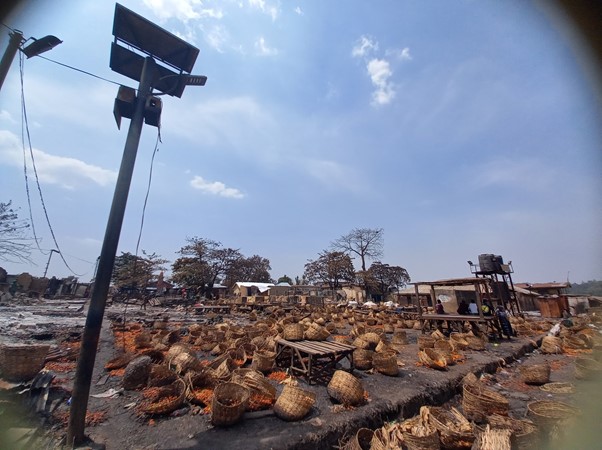
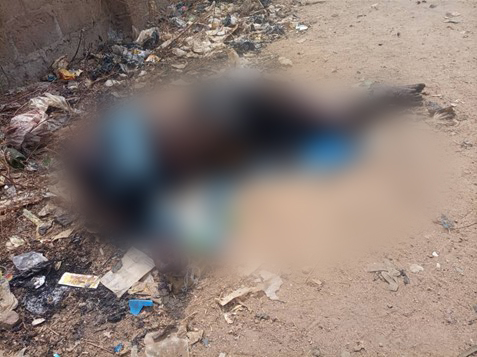
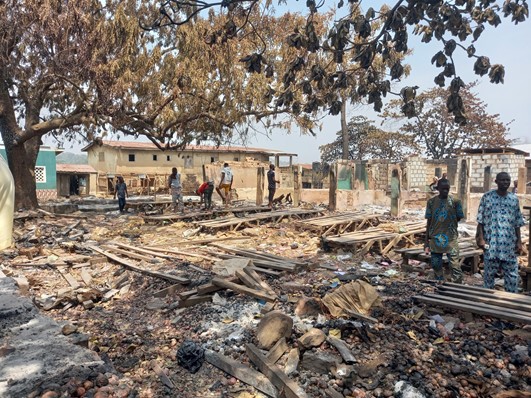
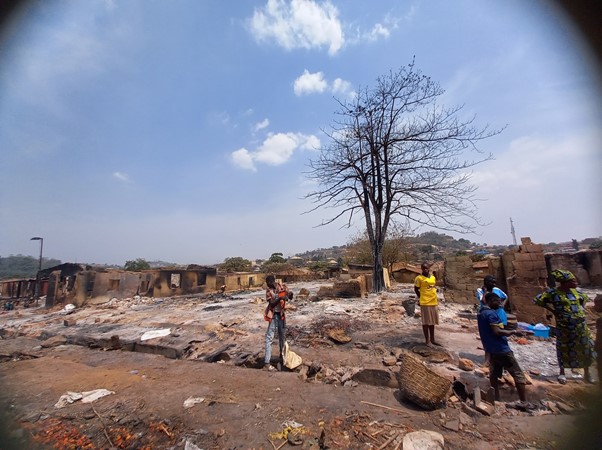
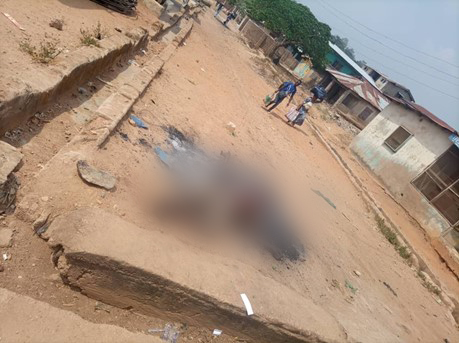
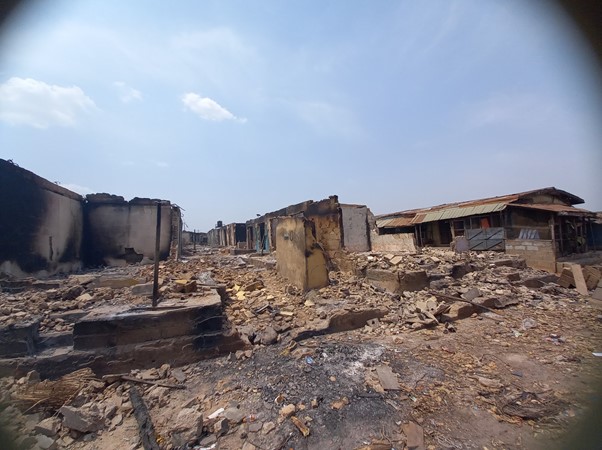
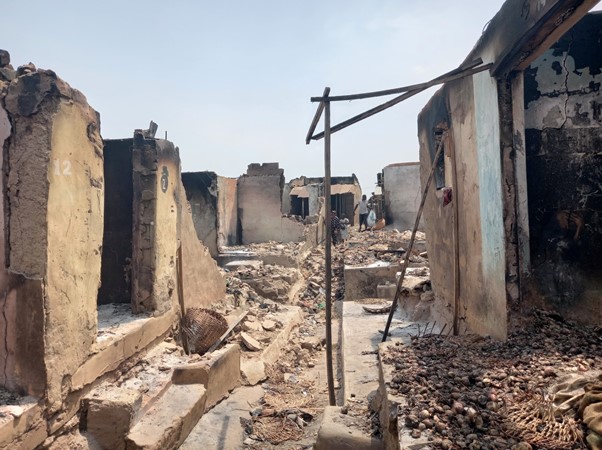
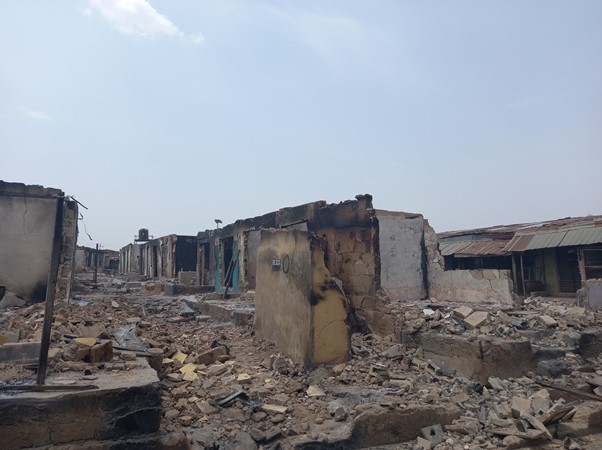
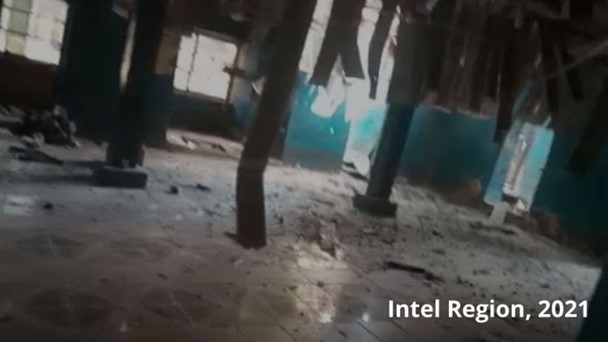




Very sad, but exposes the false bond we share in this country Nigeria.